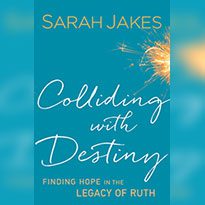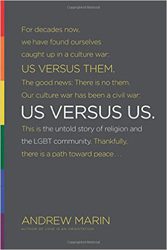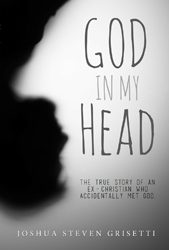 Every morning as I take my prayer walk along the beaches of Cape Cod, I repeat spiritual affirmations. These affirmations have transformed my mind and approach to the events of my life. They have also opened up new possibilities in terms of creativity and relationships. One particular affirmation I regularly use is: “I let go of limits and open to divine possibilities.” This sentiment would be endorsed by Sarah Jakes, author of the new book Colliding with Destiny (now featured at the Patheos Book Club). Although her book may have been intended to inspire women, it has much in it to inspire men as well. The heart of her book can be discovered in a couple clear statements:
Every morning as I take my prayer walk along the beaches of Cape Cod, I repeat spiritual affirmations. These affirmations have transformed my mind and approach to the events of my life. They have also opened up new possibilities in terms of creativity and relationships. One particular affirmation I regularly use is: “I let go of limits and open to divine possibilities.” This sentiment would be endorsed by Sarah Jakes, author of the new book Colliding with Destiny (now featured at the Patheos Book Club). Although her book may have been intended to inspire women, it has much in it to inspire men as well. The heart of her book can be discovered in a couple clear statements:
- If disappointments may have kept you from being your true self, this book is for you.
- By doing whatever it takes to survive, you will sow seeds of redemption into your future.
- If you dare to live again, your story doesn’t have to be associated with what broke you.
I was synchronously attracted to writing this review. At first glance, both in terms of theology and gender I might not be the most likely person to read Sarah Jakes’ book. But, just a few days before I received a memo of books to be reviewed from my Patheos editor, I was asked to do a Bible Study on Ruth and Esther for my Sunday morning Bible Study at South Congregational Church, Centerville, Massachusetts. I figured that although Sarah Jakes’ approach might differ from mine, I could learn something from her insights and experience. In the spirit of God’s gentle providence, I was right. This is an excellent book, practical and full of affirmations that can change your life.
According to Jakes, the biblical character Ruth has everything going against her – a widow in a patriarchal society, a stranger, a worshipper of foreign gods at one point in her life, and no doubt shunned in her homeland Moab because of her mixed marriage and adoption of her husband’s religion. Now as a widow in a strange land, she was at first glance bereft of resources and economic and social stability. She could have let all these things paralyze her, but she moved ahead forging a new life and becoming the foremother of the lineage that brought forth the great King David and Jesus of Nazareth.
Ruth trusted God and in that trust of God, and reliance on her mother-in-law’s wisdom, she imagined new possibilities and brought them to pass by her own personal agency. Her openness to God led Ruth to go beyond bitterness to claim God’s new dream for her life.
“I let go of limits and open to divine possibilities.” My affirmation speaks to Ruth’s faith and Sarah Jakes’ insights. God’s dream for us is always contextual. It comes to us, and not someone else. It is personal and not generic. Context always presents us with limitations. It is the nature of reality to be limited – this and not that, male not female, black not white, white not black, recipient of certain gifts, not others, with a certain environment, bank account, job situation. The concrete limitations can either make us or break us. Our sense of realism can limit us or invite us to a deeper realism in which God opens up a way where there is no way.
Just think of another limitation story. After a great talk, Jesus asks his disciples to prepare to feed the gathered community. The disciples take stock of their resources – they have known – and don’t have the equivalent of $20,000 to feed the crowd. They discover that a boy has five loaves of bread and two fish – enough for a boy but not for five thousand. They are realistic – as we all should be given our current time, talent, and treasure. In response, Jesus opens them to a deeper realism – the open system of divine providential energy – and the crowd is fed. Our limitations can be the womb of divine possibility. Past does not determine the future; it is the spiritual landscape from which our net adventures begin.
Ruth expects great things from God and this leads her to expect great things from herself. That’s Sarah Jakes’ message as well: when we “collide with destiny,” we discover that God has a vision and that vision is for good and not for evil and a future and a hope. (For more on a spirituality of possibility in companionship with Sarah Jakes’ book, see Bruce Epperly, Holy Adventure: 41 Days of Audacious Living, Parson’s Porch Books, 2014). Our destiny is bigger than we can imagine when we place our limitations prayerfully before our imaginative God.
Read an excerpt from Colliding with Destiny at the Patheos Book Club here.












